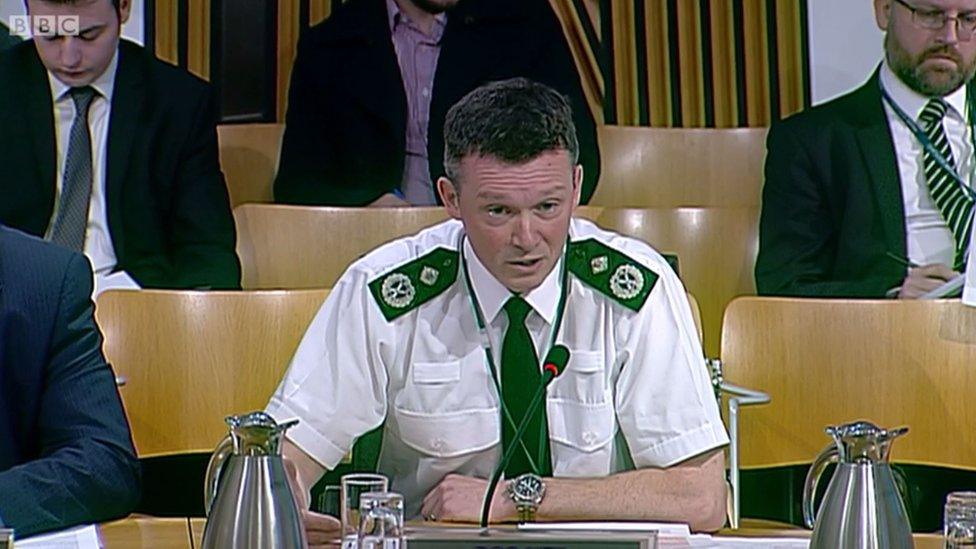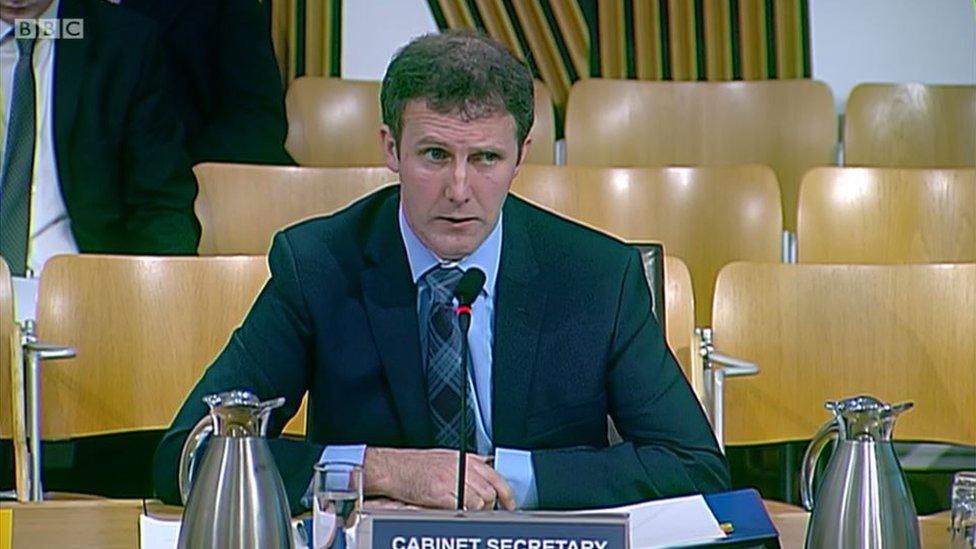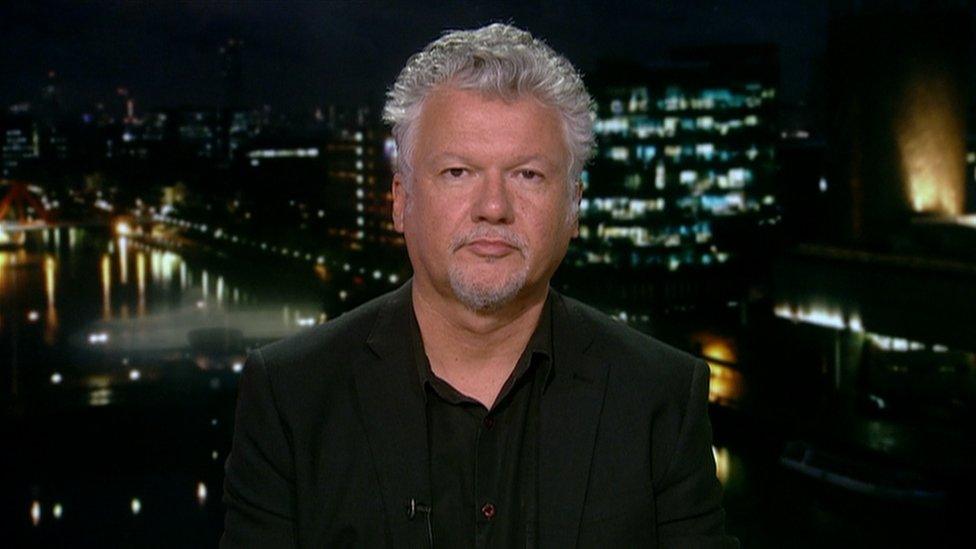Police Scotland spying rule breach 'due to misjudgement'
- Published

DCC Neil Richardson told MSPs he had been portrayed as an "archetypal villain" in the media
Police broke new rules over intercepting communications due to a "misjudgement", a senior policeman has told MSPs.
DCC Neil Richardson told the justice committee that Det Supt David Donaldson had "misinterpreted" a 22-day old code.
He said the "aggressive" pace of change in rules had contributed to the error.
A watchdog said Police Scotland's "failures" while trying to obtain details of journalist's sources could "properly be viewed as reckless".
Mr Richardson was given a detailed questioning by MSPs over the case, understood to relate to the investigation into the murder of Emma Caldwell in 2005.
The Interception of Communications Commissioner Sir Stanley Burton ruled that officers had failed to get judicial approval when obtaining communications data on five occasions.
He said it was "evident" that Police Scotland's applications "failed to satisfy the requirements of necessity and proportionality" or to give due consideration to the European Convention on Human Rights.
'Experienced officer'
Mr Richardson said police had a "very rigorous and very robust set of arrangements", but said Mr Donaldson - an "extremely experienced officer" had "misinterpreted" a code of conduct which had been in place for just 22 days.
He said "the pace the new guidance came into being was very aggressive", which may have been a factor in the "error" subsequently made.
The policeman also hit out at some press coverage of the case, saying he had been portrayed as an "archetypal villain" and saying police had been unable to respond to many stories due to the live murder inquiry.
He then clashed with MSPs Christine Grahame and Elaine Murray over the definition of the word "reckless", which was used in Sir Stanley's report.
Mr Richardson said he had been given a definition of "reckless" in a confidential paper, which he was unable to hand over to the committee.
Police Scotland has said it has taken "robust and rigorous steps" to comply with requirements in future.

Michael Matheson defended Police Scotland and the Scottish Police Authority at the committee hearing
Justice secretary Michael Matheson was called upon to defend Police Scotland and the Scottish Police Authority when he gave evidence.
He said that while the deficiencies identified by the watchdog at Police Scotland must be addressed, he said the issue was caused by an officer making a mistake "no doubt while trying to do his best".
MSP and former policeman John Finnie said there was a "serious issue" over the Scottish Police Authority "effectively making themselves redundant".
He said: "Once again the Police Authority look like bystanders, on-lookers to a process, always having to play catch-up."
Mr Matheson said there was "room for improvement" but defended the role of the SPA, saying oversight on the matter discussed lay with the Information of Communications Commissioner's Office (IOCCO).
Convener Ms Grahame had earlier asked John Foley from the Police Authority if the body had "just sat on its hands".
Mr Foley also stressed that the SPA had to allow IOCCO to do its job, and does not have investigative powers of its own.
- Published25 November 2015

- Published6 August 2015

- Published5 August 2015
